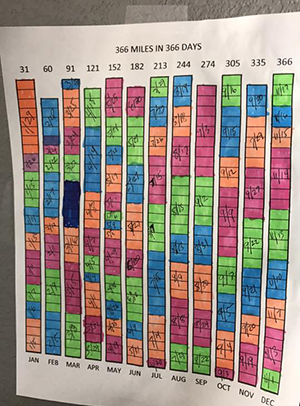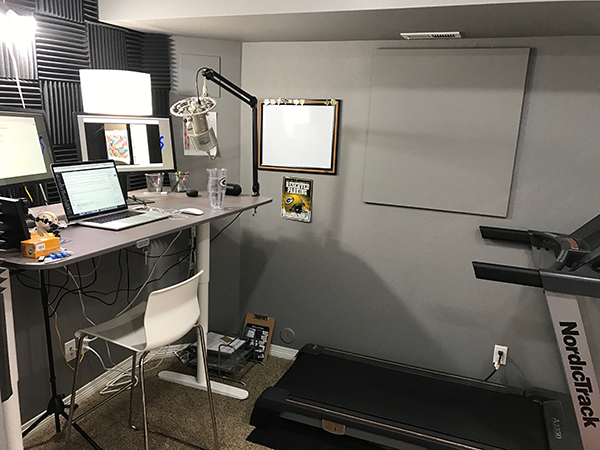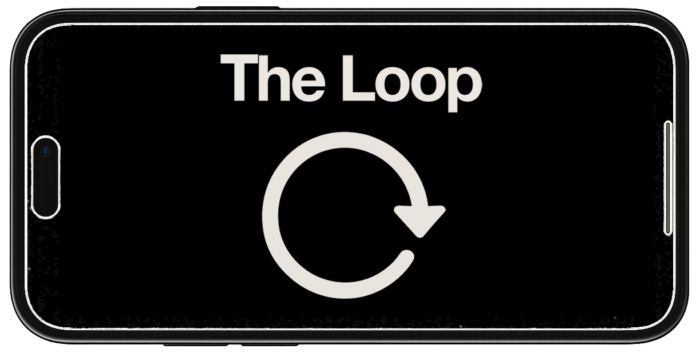[NOTE: This is the fifth in a series of posts exploring the topic of entrepreneurship. While my focus has and will continue to be on Facebook ads, I have plenty to share about what I’ve learned while building my business.]
As I brainstormed ideas for topics to cover on the subject of entrepreneurship, many focused on the technical requirements of setting up a business. Software. CRM. Websites. Payment gateways.
But these subjects skip over an important topic for entrepreneurs: Self-care.
It’s no surprise, really. As entrepreneurs, we regularly skip over care for ourselves. But I’ve learned during the past five-plus years that my own health — physical and mental — needs to be a priority now, more than ever.
This can be a very lonely life. It’s ripe for self-doubt and depression.
I, by no means, have this thing figured out. It’s a constant battle. What I’m sharing today isn’t a detailed fix.
My intention is to highlight the pitfalls you’re likely to fall into as an entrepreneur, and some of the things that I do to overcome them.
This is a Different World Now
My life now is nothing like it once was. There was a time when my alarm went off at a specific time every weekday. I knew I had to shower, eat, and dress by a certain time to fight traffic and get to work by another specific time.
I answered to a “boss.”
While we complain about working for “the man,” there’s something comforting about that structure. There are set expectations provided by someone else. Now, your business obligations are self-driven.
As an entrepreneur, you don’t necessarily need to do anything. You can skip work today. You can skip showering. You can wear what you slept in. You can go weeks without shaving. (I’ve done all of these things.)
You create your own deadlines. Missed it? You decide whether that matters.
This new world is both liberating and paralyzing at the same time. It’s the ultimate responsibility. You determine every next step, not your boss.
First, we need to acknowledge this new world. Accept its benefits and challenges. See how our own strengths and weaknesses impact how we adapt.
While I will tell you that I don’t like having a boss, I’m also not the best at planning and organization. So it’s a constant struggle that I need to fight.
This new world of freedom has made several things much more important than the days of structure, roles, teams, and bosses. Here are a few things I’ve learned — even if I haven’t perfected them.
1. Create a Routine
It’s been a struggle for me from Day 1, but a routine is absolutely critical. Create a habit — one that is difficult to break.
There are two categories of routine items that go here: 1) Independent and 2) Dependent.
The independent items of my routine are the most difficult to keep. Things like “Run for two miles” could not happen, and no one else around me would notice or care.
It’s important to create dependent routine items or things that others will depend on. I have a weekly team meeting on Mondays. I host scheduled training sessions, free webinars, and weekly webinars for my private community. I allow people to book one-on-one sessions with me.
These are all obligations that are etched in stone on my calendar. I wouldn’t ever neglect them.
I like to bucket my days accordingly:
1) Monday: Weekly team meeting and free webinars once per month
2) Tuesday: Training program webinars
3) Wednesday: Power Hitters Club – Elite weekly webinar
4) Thursday: One-on-one sessions and write a blog post
5) Friday: Interviews, lunch with my wife, and publish a blog post
Notice how there’s very little overlap between days? I could do one-on-ones on multiple days (I once did). I could do my monthly webinars on days other than Mondays. I could do interviews on any day of the week.
Instead, each day has its own purpose. For me, that provides important clarity.
There was a time when I tried to create a very detailed routine. My calendar would be filled with blocks of time for the smallest of tasks. I’d block off time for answering emails, closing tickets in ZenDesk, replying to blog comments, reading and researching, and a whole lot more.
But I quickly failed with that approach. Something more important would come up, and I’d need to skip a 30-minute block. And once skipping blocks became more common, the notifications became noise and I ignored them altogether.
These days, I’m a little looser with my routine. I wake up at “about” 7am every weekday. I have a 15-minute check-in call with John Robinson at 8am. I walk our son JJ to school at 8:20am. I eat lunch at about noon.
After that, I work around the dependent items with the other things I want to do. I don’t HAVE to go for a run at 10am. My schedule is too fluid to force that. If something comes up, the next thing you know is that I skip running altogether.
So now, I keep it much simpler. I might have a long list of things I’d like to do. But in reality, there are two (independent) things I really need to do during a given day. I fit what I can in around everything else.
As a result, I don’t have a routine in the way that you may expect. I don’t wake up with my entire day laid out for me. I have realized over the years that this simply isn’t realistic.
By building my day around a small set of dependent and fixed items, there is more room to adjust and less possibility that I’ll feel I “failed” by being unable to stick to my schedule.
2. Set Aside Times for Calls and Interviews
This is part of a routine, but it’s so important that I’m creating a separate item for it.
If you aren’t careful and respectful of your own time, you won’t accomplish anything you plan to accomplish on a day-to-day basis. You will feel rushed and frustrated.
As my business became more and more successful — and as I’ve become more well known — people have demanded more of my time. Developers wanting to tell me about their products. People wanting to partner. Podcasters wanting to interview me.
While these things could rule my schedule, I don’t do them more now than I did four years ago. In fact, I may do them less.
If you want to set up a call with me, I have three slots open on Monday and two on Friday. If I’m not free or those times don’t work for you, too bad.
Oh, sure, I do make exceptions. But this basic structure is really important for keeping me sane. And it is also connected to number 3…
3. Say “No” — A LOT
There is no more liberating word than “No.”
There was a time when I said “yes” to just about everything. You want me to write a blog post for you? You want my quote for a round-up? You want to set up a call to tell me about your product or “pick my brain”? You want me to make an exception and schedule a one-on-one outside of times I normally would?
I said yes time and time again. And it created more stress.
Not every new opportunity is a good one. I don’t believe I’m exaggerating by estimating that I say “no” to 99% of opportunities.
And some of these opportunities have lots of upside. But they always add more work, more time, and more stress. So remember this, and prioritize accordingly.
I rarely agree to public speaking gigs. I almost never engage in partnerships. I try hard to make product and brand changes rare while staying fresh.
These are conscious decisions, and you should not feel guilty for saying “no.” Embrace the opportunity to choose your path, even if it means continuing down the one you’re on.
4. Stay Active
Get your ass out of your chair. DO SOMETHING!
This is probably the one thing that routinely falls off of the priority list. Something more important always comes up. Don’t let it happen!
Last year, I set a goal for myself to run 366 miles (or a mile per day). I eventually ran 400 miles. This was possible thanks to a colorful chart that I filled in every time I ran.

This is no small achievement for me. I’ve never been a runner before. In fact, there was a time when I created a Facebook group for people who would never run a marathon. This year, I’ll run 500 miles.
You don’t have to turn yourself into a runner. But freaking do something. I also use an app called Sworkit that allows me to do quick 10 and 15 minute workouts for strength and cardio. There are many apps like it to choose from.
At the bare minimum, find a way to get your butt out of your chair. I have an adjustable desk that can be for sitting or standing. I sit sometimes, and I stand sometimes.

Above is my office, with a standing desk and treadmill to the side. On the far wall behind my microphone is this year’s running chart. Good reminders to stay active!
Remember that your health is an investment in your business. Your business will not succeed if you are sick or lethargic.
5. Get Outside
The day can get away from you fast. The next thing you know, it’s 10pm and you’re still wearing what you woke up in.
When you’re on your own clock, there’s always an excuse. It’s too cold. It’s raining. There’s a 10 MPH breeze.
I’d like to say that people in San Diego have no excuse. However, that’s not fair. I guarantee I’d make up an excuse not to get outside if I lived there.
Staying locked up inside is a path to depression. There’s something therapeutic about the outdoors. The birds, the fresh air, the activity around you.
By sitting inside all day, you dull your senses. There are no surprises. What you see and feel is a boring, never-changing constant.
Go outside, and your senses come alive. New sounds, smells, and sights. It activates your mind.
As I mentioned earlier, I walk my son to school every morning. When it’s nice out (an excuse, I know!), I’ll run or go for another walk during the day. I’ve found that these are the times when my brain is most active with ideas.
It’s good for your health, but getting outside is also good for brainstorming business ideas.
6. Have an Outlet
Find a passion, preferably one that gets you out of the house.
My passion is coaching baseball. A year and a half ago, I started a travel team called the Spiders for my middle son.

Coaching a travel team is no small task. It’s not just two months of the year, showing up to a practice and game once per week. This thing is a year-long commitment.
We practice all year long, usually multiple days per week (depending on the time of year). We play in 13 or so tournaments in addition to league games. I’m constantly planning or participating in a practice or game.
But it’s way more than that. I started the team, so I am in charge of managing the roster, fees, uniforms and everything in between. I get some help (especially my wife for the financial stuff), but this is essentially an unpaid job.
I love every minute of it. Most importantly, it allows me to dedicate significant physical and mental energy towards something that isn’t related to my business. It’s a great way to get away from the rigors of entrepreneurial stresses.
Find something. It could be helping out at your kid’s school or volunteering for your favorite cause. But it’s healthy to get your mind on something else.
7. Find a Mentor
This was so important for me in the early going.
It’s easy to get lost in your own thoughts. We obsess over the smallest things. We lack direction and feedback. It’s overwhelming, lonely, and depressing.
Starting very early on in my journey, I had weekly calls with John Robinson, who is family and a successful entrepreneur. He was the guide I needed to walk me through not only business decisions but the emotional roller coaster. We now talk almost every day.
John wasn’t the only one. There were many others in the early days who were generous with their time and helped guide me through each step. Eventually, I felt as though I was pushed out of the nest and figured out that I could fly.
Finding a mentor isn’t an easy task. You can’t force someone to be your mentor. And mentoring needs to be something that someone is passionate about doing.
Not everyone wants to be a mentor. Not everyone would be a good mentor. But it’s good to have some sort of sounding board to guide you through.
8. Stay (Physical World) Social
I suck at this. I know it sounds ridiculous as someone who works in social media, but I am not a social guy.
When I walk into a room full of strangers, I find a secluded chair in the corner. I don’t like it. Meeting new people is not fun for me. It’s even a little scary.
So I won’t tell you that I’ve succeeded at this one. But I know how important it is.
Don’t underestimate what working for yourself can do to your social life. You no longer have cubicle friends. The community is gone.
I’m not looking for sympathy, but I lack physical friends. I have online friends and acquaintances, but I almost never do anything social in the physical world.
This is partly attributed to my focus on family. In my free time, I’m spending time with them or coaching baseball. But I absolutely should create room for friendships. I simply haven’t made it a priority.
9. Value Sleep, Rest, and Reflection
I’ve found that entrepreneurs like to publicly boast about how little sleep they get. I’ve never understood that. If you want to produce efficiently for your business, you need to be well-rested. You aren’t Superman.
I do everything I can to get at least eight hours of sleep every night. Sometimes more. I’m not always successful, but it is a priority.
Remember that as an entrepreneur, you have more freedom than other people. You create your own hours. If you aren’t well-rested, set aside time for it. Take a 30-minute nap. You will be a better producer as a result.
I’ve experimented with meditation, but it’s not something that has become part of my routine. But the main thing is making sure to set aside time to simply breathe and relax, no matter how you do it.
10. Punch Guilt in the Neck
As entrepreneurs, we are our own worst enemy. We beat ourselves up at every opportunity. Our output wasn’t good enough. Revenue isn’t good enough. The product you launched isn’t good enough.
We make ourselves feel guilty for sleeping. For getting away from the computer. For taking a break from work. For enjoying our lives.
Just stop. Punch guilt in the neck.
Forgive yourself for making mistakes. Forgive yourself for not reaching a goal. Forgive yourself for skipping a task today.
There’s a balance, of course. You still need to hold yourself accountable (you have no boss, after all). But stop making yourself feel bad for the smallest things.
Somedays, I do very little work. It’s important that I allow myself to enjoy that time. Otherwise, I spend the entire time feeling guilty and miserable. That free time then becomes counterproductive in every way.
11. Celebrate Small Wins
You’re doing something amazing. While everyone else is working for someone, you are creating a business. There will be plenty of ups and downs and stuff in between. But don’t forget to enjoy those little wins.
If you are never satisfied, you’ll always be miserable.
This doesn’t mean that you reach that goal and then say, “Screw it, I’m done here!” It means that you reflect on and appreciate the little things you accomplish on a daily basis.
You finished a blog post you feel good about? Great job! Today was a great revenue day? Congratulate yourself! Someone thanked you for helping them? Cheers to you!
You dictate how you feel about yourself and your business. Don’t overlook the little things. What you’re doing is incredible — very few people would ever dare take the risks you’re taking. Celebrate each and every success and appreciate what you’re accomplishing!
12. Don’t Dwell on Small Losses
You have bad months. A product doesn’t sell well. Software isn’t dependable. Staff leave. Customers complain.
These things happen. Don’t dwell on the small losses. When you dwell on failure, you create an environment where you fear making mistakes. And mistakes are how we learn.
It’s time for a baseball analogy (I am a baseball coach, after all!). The best baseball players aren’t that way because they’ve always gotten hits and won games. They’ve experienced loss. They’ve experienced adversity. These things made them better prepared, and they learned from it.
When you experience failure, look at it as a chance to learn something. Don’t ignore it like nothing happened, or it will happen again. But don’t put your head down, kick dirt, throw your helmet, and sulk back to the dugout.
Those who sulk don’t learn. You need thoughtful reflection. Those who reflect think about what happened and think about whether the result was avoidable. If it was, they find a way to prevent it from happening again.
Sometimes, the negative result was difficult or impossible to avoid. Sometimes, our process was right and we strike out.
13. Find an Emotional Release
We entrepreneurs are a ticking time bomb if we don’t take care of ourselves. We can be overcome with our own thoughts and obsessions.
Find a release. This could mean keeping a journal. Or having a friend or spouse whom you talk to regularly about what you have going on. Or it could be reading a book or watching a movie.
We all get that emotional release in different ways. Find your way.
14. Be Present for Loved Ones
Don’t let your business overcome you. Especially if you work from home, it’s very difficult to separate work from non-work hours. Don’t fall into this trap.
Turn off phone notifications. Put your device away. Spend time with your spouse, significant other, or kids — but be present. Avoid being distracted by your device or what’s going on with your business.
This is a conscious decision. Mentally put aside your business and enjoy time with the people who matter. Otherwise, while you may be physically present, that time is wasted.
While I prioritize time with my family, I am guilty of wasting it as well. I still look at my phone too often. I still nod my head and act like I’m listening when I’m thinking about something else.
Acknowledge it. Apologize for it. Do your best to correct it. They deserve better.
I do my best to separate work and non-work time. I’m not always successful — it’s a battle — but I realize how important it is.
15. Get Help (If Needed)
The independence you have as an entrepreneur is exhausting. It is. It’s also so rewarding when you allow it to be.
However, we can’t overlook the different stresses and struggles that are unique to entrepreneurs. The isolation is an easy path to depression and destruction.
Do your best to maintain your physical and mental health. Be self-aware so that you know when it’s time to get help.
That could mean speaking with your spouse or significant other about these challenges. It’s very easy to bottle up and keep these things from my wife. I actively force myself to be more open.
It could be talking with a mentor. Or joining masterminds. Clubs, communities, or support groups of entrepreneurs who are going through something similar.
Professional counseling should always be an option. Because of the unique lives we live, there are times when we need a little extra help. Seek it without shame.
Your Turn
I don’t have this thing figured out yet, but I am grateful for all of the support and lessons learned along the way.
Anything else you’d add to this list? Let me know in the comments below!







